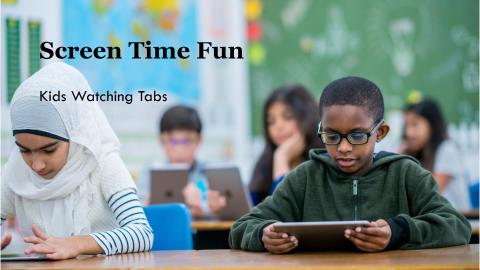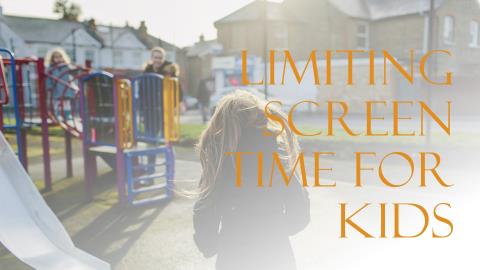Excessive screen time in kids has raised concerns about children’s well-being, and research provides valuable insights into the impact of screens and healthier alternatives.

Effects of Screen Time on Kids:
- Cognitive Development:
- Negative Impact: A study by the National Institutes of Health (NIH) found that children who spend more than two hours a day on screens score lower on language and thinking tests.
- Brain Structure: MRI scans revealed that kids with more than seven hours of daily screen time showed thinning of the brain’s cortex, related to critical thinking and reasoning.
- Mental Health:
- Increased Anxiety and Depression: A study published in JAMA Pediatrics found that children aged 12-18 who spent more than three hours daily on screens experienced higher levels of depression and anxiety.
- Sleep Disruptions: Excessive screen use, especially before bed, is linked to poor sleep quality, leading to mood swings and behavioral issues.
- Physical Health:
- Obesity: A report from the World Health Organization (WHO) correlates extended screen time with a sedentary lifestyle, contributing to rising childhood obesity rates globally.
- Eye Strain: The American Academy of Ophthalmology highlights an increase in “digital eye strain” among kids, causing dry eyes, headaches, and blurred vision.
Healthy Activities for Kids:

- Physical Exercise:
- The American Academy of Pediatrics (AAP) recommends at least 60 minutes of physical activity daily to improve cardiovascular health and reduce obesity .
- Activities like cycling, swimming, or playing soccer can help offset the sedentary nature of screen time.
- Outdoor Play:
- Studies show that children who play outside exhibit improved attention, reduced stress, and higher levels of creativity.
- Educational Screen Use:
- The AAP encourages using screen time for educational purposes, like interactive learning apps or family-oriented activities that promote problem-solving and language skills.
- Creative Hobbies:
- Engaging in art, music, or reading fosters creativity and cognitive development. Kids exposed to creative play display better problem-solving and social skills.
By balancing screen time with physical, social, and creative activities, parents can support their children’s holistic development and health.




